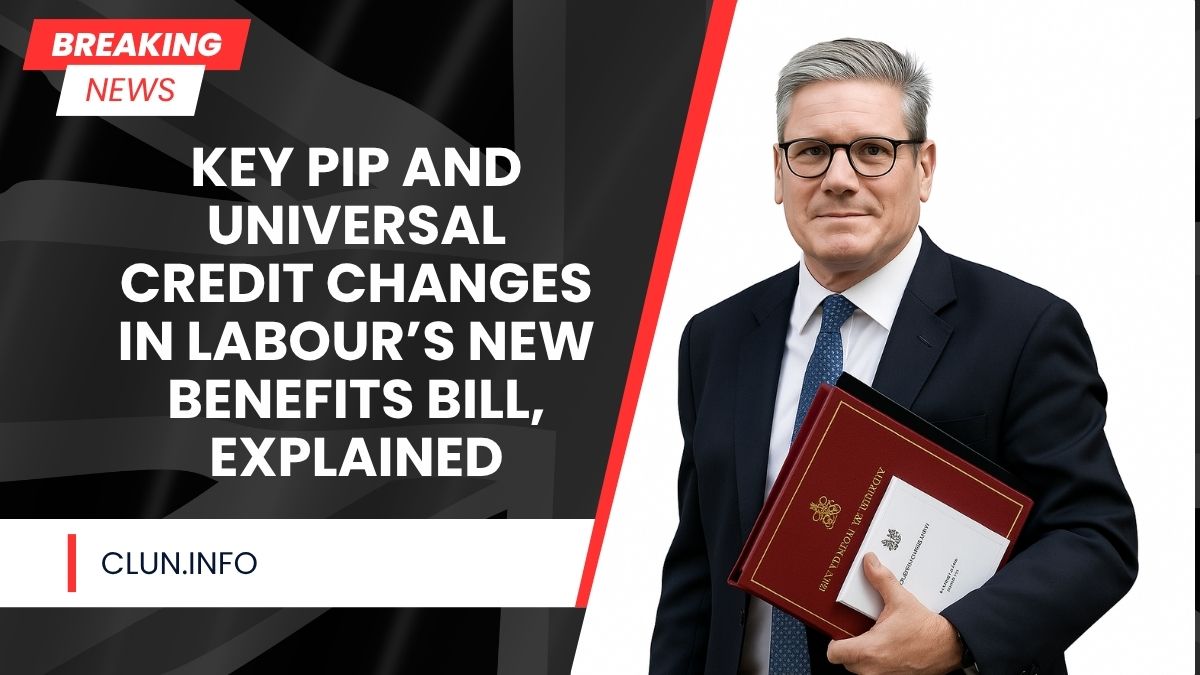The UK government has made significant concessions in response to growing opposition from its own MPs, particularly those from the Labour party. Initially, ministers aimed to cut around £5bn from the nation’s benefits bill, focusing on changes to Personal Independence Payments (PIP) and Universal Credit (UC).
However, with over 120 Labour parliamentarians publicly opposing the proposed welfare reforms, the government was facing a potential defeat in the House of Commons. In a bid to avoid this, Keir Starmer offered several concessions to appease the rebels, leading to a new agreement that ensures the legislation is likely to pass.
What Were the Planned Welfare Cuts?
The original welfare reforms, introduced through the Universal Credit and Personal Independence Payment Bill, were unveiled in March 2025. The proposed changes were particularly controversial due to their potential to tighten eligibility criteria for people with disabilities receiving PIP.
Some estimates predicted that over one million people might lose out on support under the revised rules, causing an outcry among disabled people and campaigners.
Concessions on PIP Changes: What’s New?
Under the original proposals, the government aimed to alter the way PIP eligibility was assessed. The new rules were to assess whether individuals could perform basic tasks like preparing food or washing themselves.
However, facing mounting backlash from both the public and MPs, the government now promises that current claimants will not be affected by the changes. Instead, the stricter eligibility rules will only apply to new claimants starting in November 2026.
Liz Kendall, the Work and Pensions Secretary, reassured MPs by stating that all existing PIP recipients will remain under the current system, ensuring their support stays intact.
Additionally, the government has committed to a review of PIP assessments, spearheaded by Sir Stephen Timms, in collaboration with disabled people.
Updates on Universal Credit Changes
Universal Credit (UC), a major benefit for working-age individuals, also faced adjustments under the bill. Currently, UC provides around £400 per month to single people over the age of 25. However, disabled claimants or those with long-term health conditions had the potential to receive an additional £423.27 per month.
Initially, changes were set to limit eligibility for the incapacity top-up to those over 22, but the government has reversed this. Now, they have pledged that UC payments for people with disabilities will be fully protected in real terms, meaning their support will keep up with inflation.
What Stays in the Bill?
Despite the major changes to the eligibility criteria for PIP and UC, certain provisions in the bill will still apply, albeit only to new applicants. Notably, changes to the PIP assessment process will continue, but they will undergo a review to ensure fairness. Additionally, the merger of Jobseeker’s Allowance and Employment and Support Allowance is set to proceed, along with a “right to try” initiative designed to encourage people to return to work.
A £1 billion package to support disabled individuals in finding employment will also remain in place, and inflation-busting rises to UC payments over the next four years are expected to be implemented.
The government’s decision to reverse some of the more controversial elements of the Universal Credit and Personal Independence Payment reforms is a significant win for campaigners and MPs who opposed the cuts.
By offering concessions, the government has managed to keep the legislation moving forward, with assurances that existing claimants will be shielded from the harshest changes.
However, the new rules will still be enforced for new claimants starting in November 2026, and the PIP assessments will undergo a review. While some of the most damaging cuts have been softened, certain changes to the benefits system will continue, albeit in a more gradual and controlled manner.
FAQs
Will current PIP recipients be affected by the new changes?
No, the new rules will only apply to new claimants starting in November 2026, while current claimants will remain under the existing system.
What is the Universal Credit top-up for people with disabilities?
Disabled individuals or those with long-term health conditions may receive an additional £423.27 per month on top of the standard Universal Credit.
Are there any protections for Universal Credit recipients under the new bill?
Yes, the government has pledged that UC payments for people with disabilities will be fully protected in real terms.




